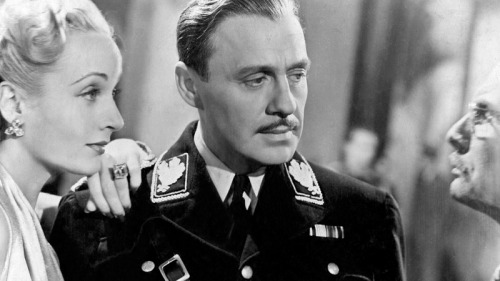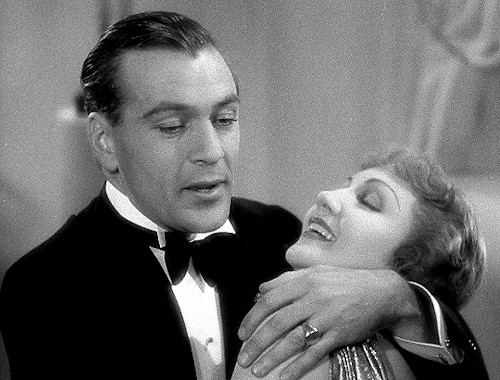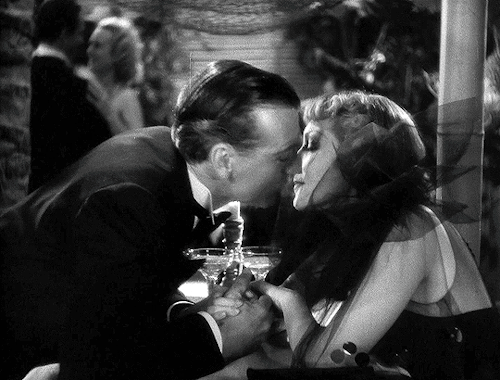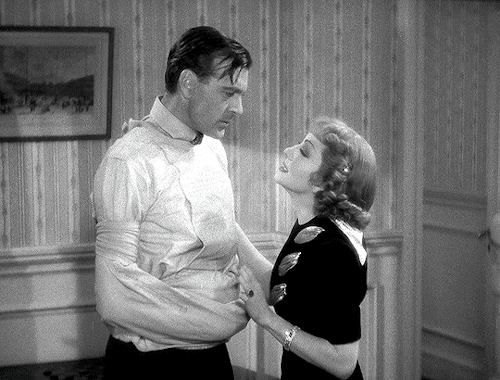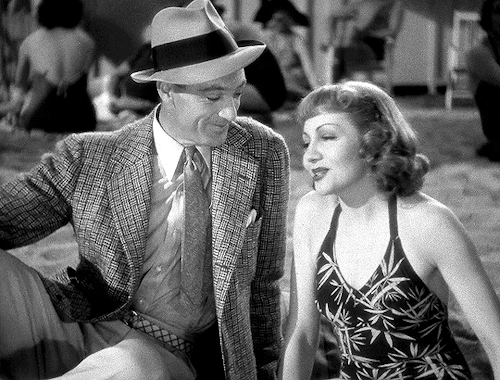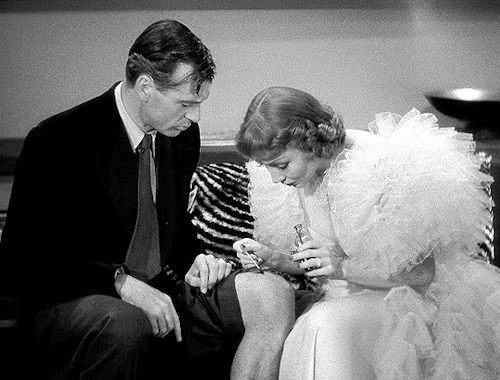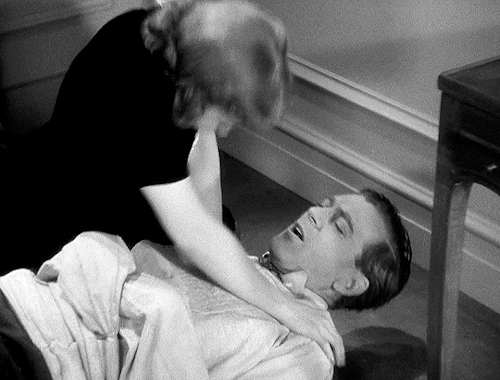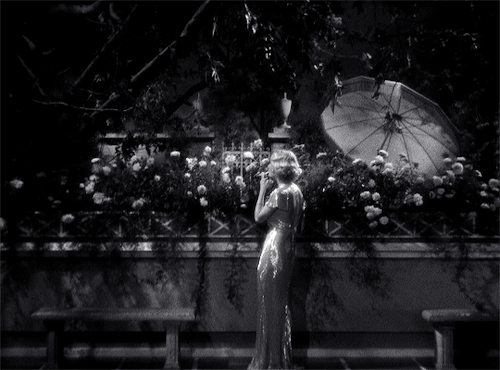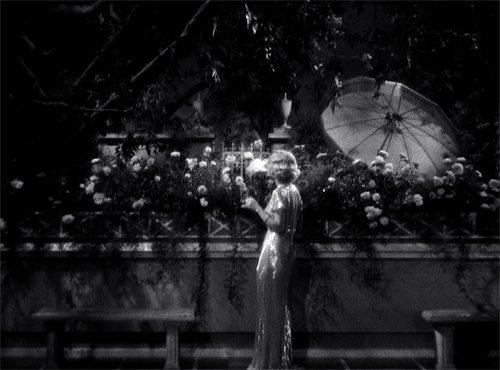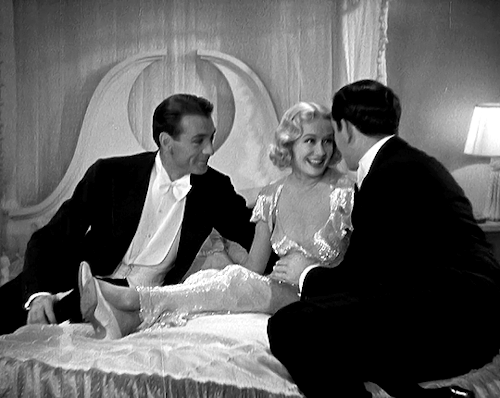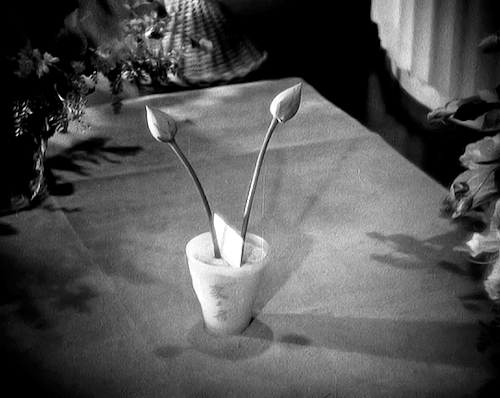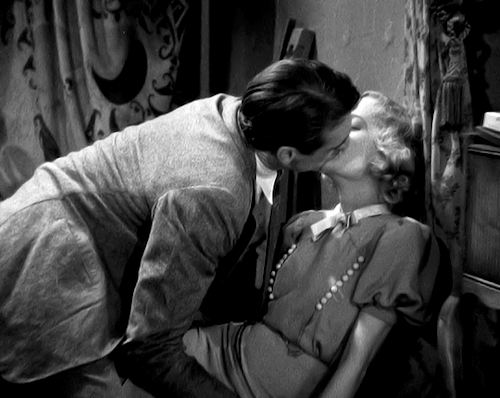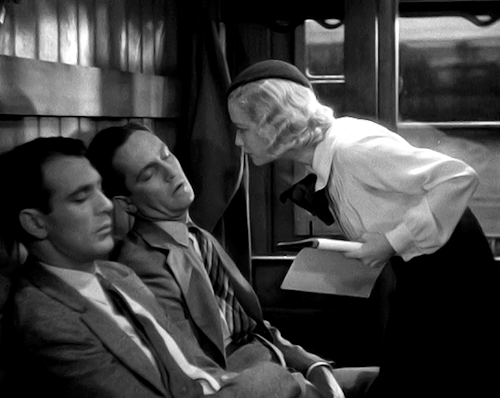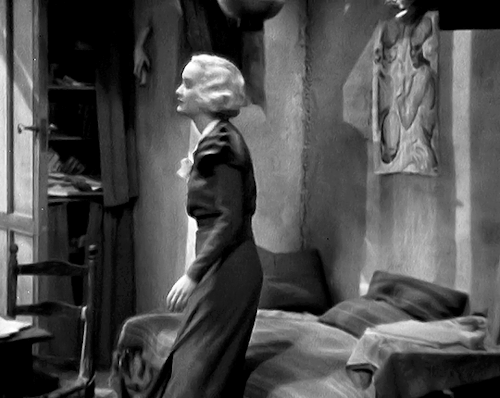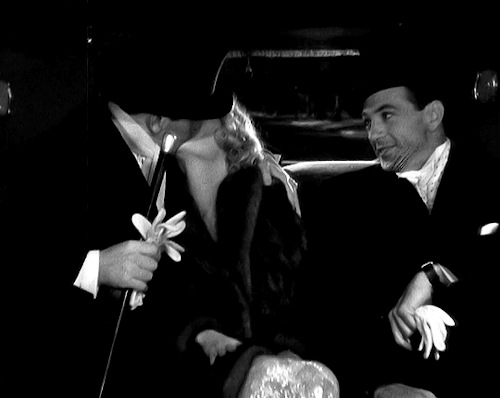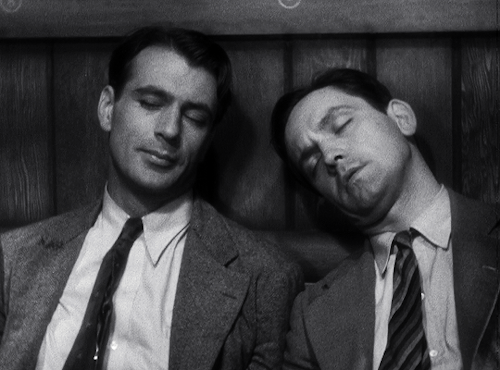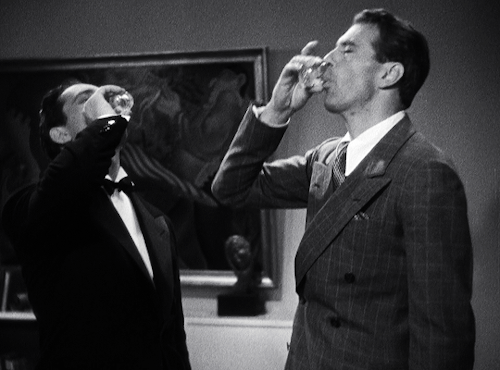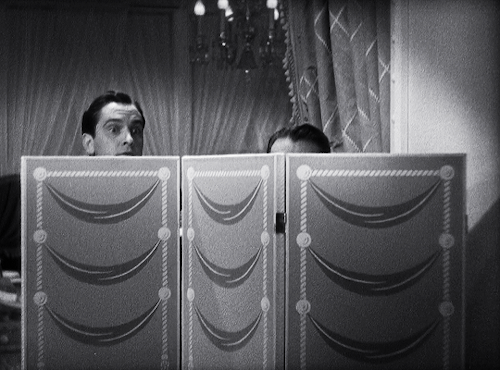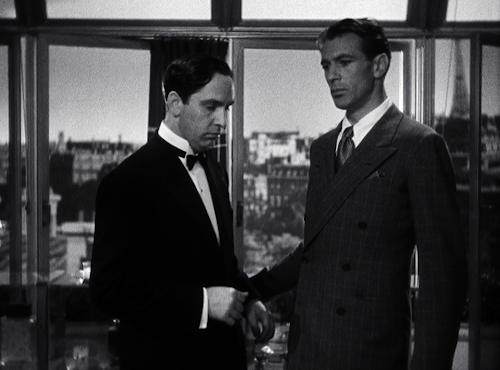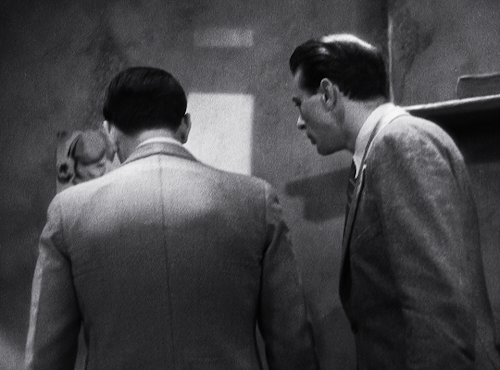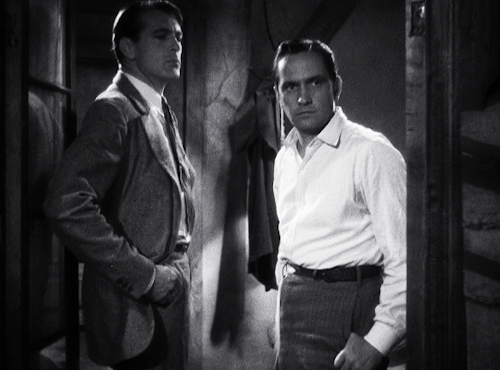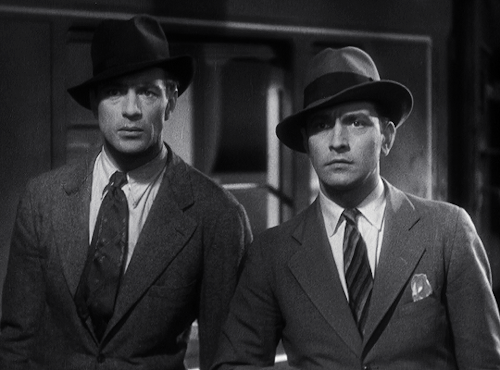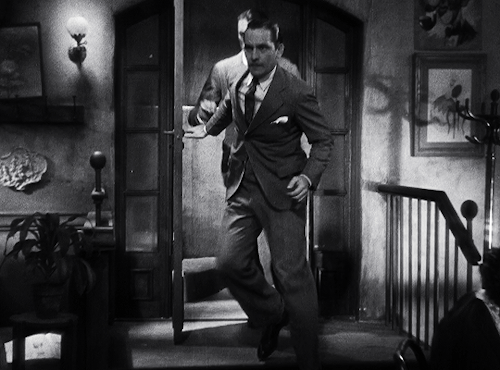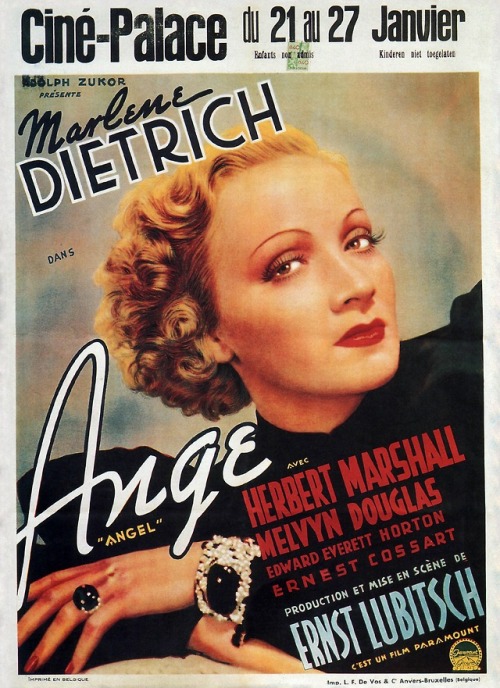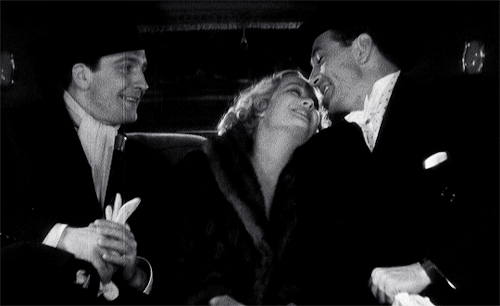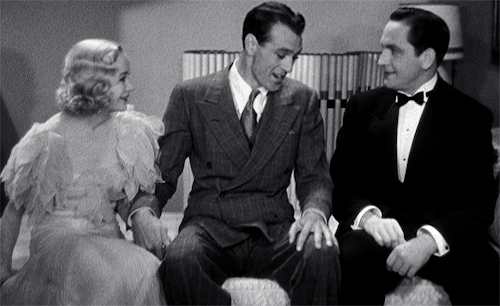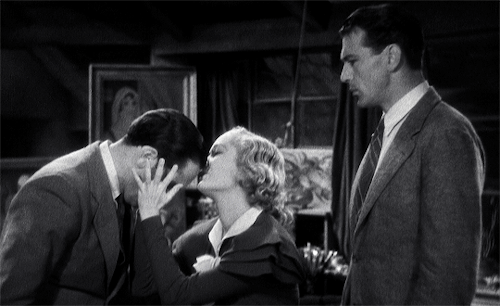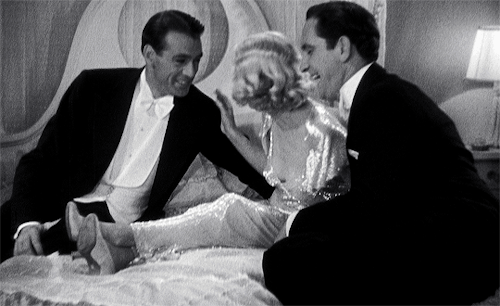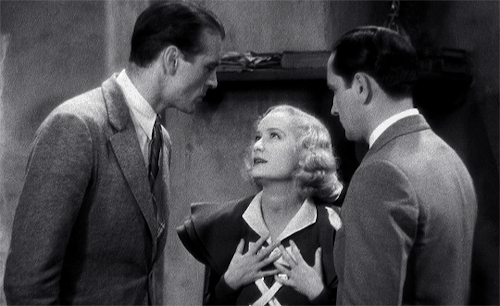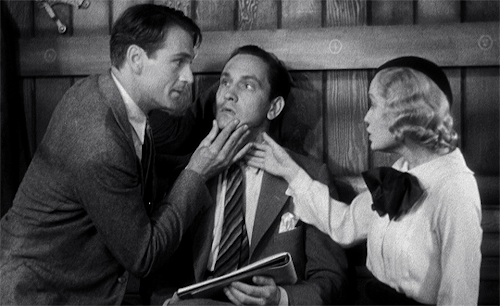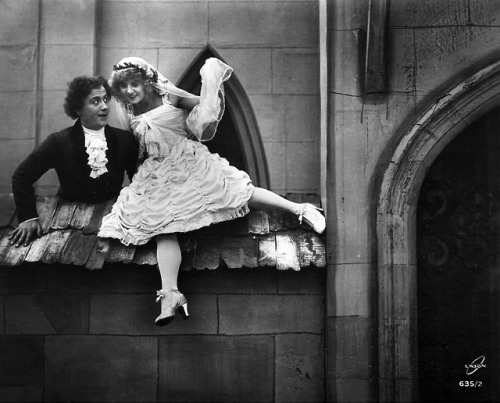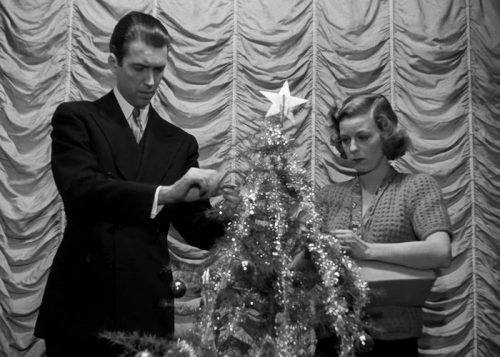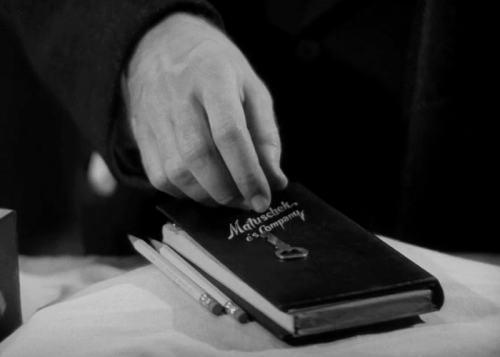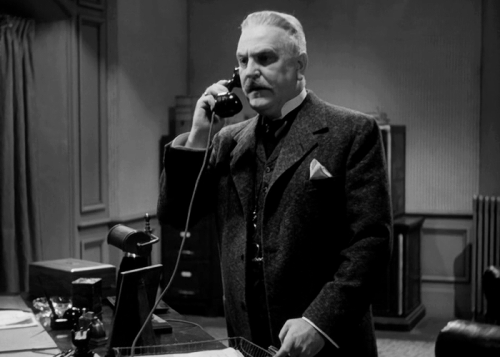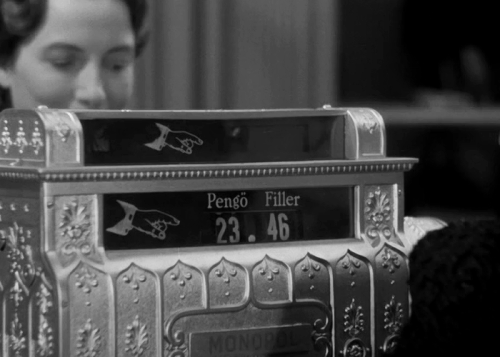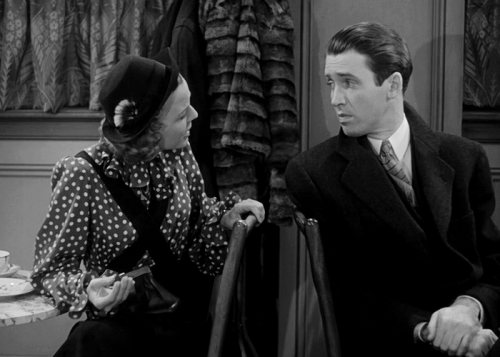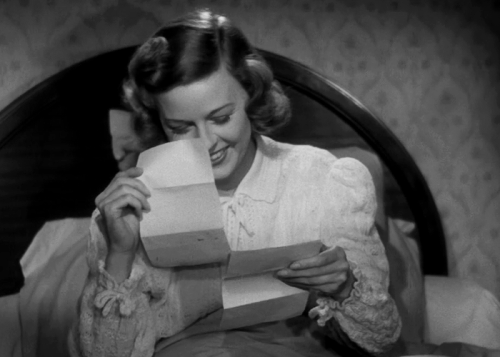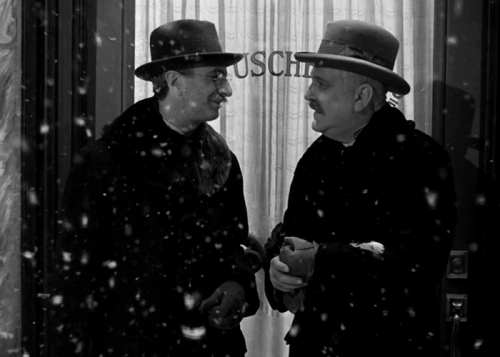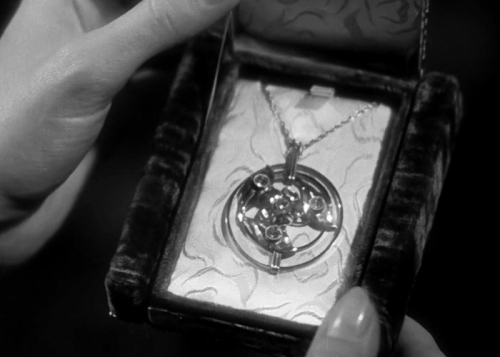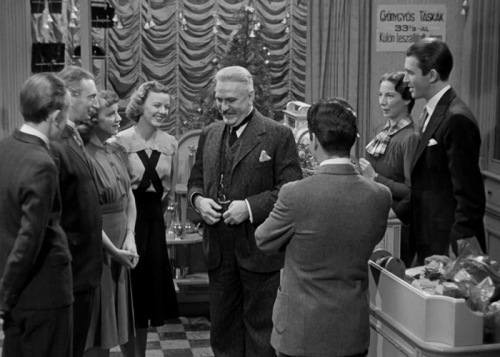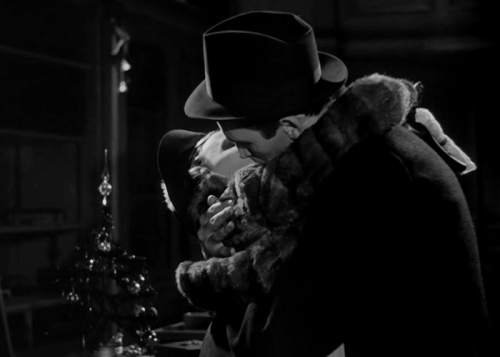#ernst lubitsch
I’ll fight you with every vegetable at my disposal!
Claudette Colbert & Gary Cooper in
Bluebeard’s Eighth Wife
1938 dir. Ernst Lubitsch
Post link
Let’s talk about ourselves. Very interesting.
GaryCooper&FredricMarchinDesignforLiving(1933)dir.ErnstLubitsch
Post link
But, boys, this is very important. There’s one thing that has to be understood. I know. Yes, we know. It’s a gentleman’s agreement.
Design for Living (1933) dir. Ernst Lubitsch
Post link

New York Times’ film critic Mordaunt Hall was beyond effusive in his review of Ernst Lubitsch’s 1926 comedy souffle SO THIS IS PARIS (’26) describing it as a “gay picture” which “hails from the workshop of that master director Ernst Lubitsch” and is doing its share to “uphold the screen art…’” He added that the “farce comedy is titivated with satire. It is a farcical yarn that keeps one amused from the start. The publication named the romantic roundelay starring Monte Blue, Patsy Ruth Miller, Lilyan Tashman and Andre Beranger, as one of the top ten films of the year.
Though several of Lubitsch’s silent Hollywood films have been released on DVD or aired on TCM, that hasn’t been the case with SO THIS IS PARIS, because the comedy didn’t have a score until now. The virtual TCM Classic Film Festival has the “Lubitsch Touch” Sunday evening with the world premiere of the new restoration of SO THIS IS PARIS, presented in a 2K scan off the Warner Bros. nitrate complete with a lively original organ score by and performed by Ben Model.
Over the years, TCM had licensed Model’s scores for silent films in the public domain he had initially done for home video including Baby Peggy’s THE FAMILY SECRET (‘24) and Marion Davies’ WHEN KNIGHTHOOD WAS IN FLOWER(‘22). One of the top accompanists and composers of silent film scores, Model had long wanted to work with TCM to commission new scores for their scoreless silent films in their library. After discussions with Charles Tabesh, TCM’s SVP for programming and content strategy, Model was able to score SO THIS IS PARIS.
“I knew SO THIS IS PARIS had been shown at the TCM Film Festival a few years prior,” said Model. “I knew this is a film that Warners’ controls. It’s a film I don’t have to convince anybody about… It’s already on everyone’s radar. I also knew that the Library of Congress had material on it.” And, it turned out TCM had scanned its print of the film. “They sent me a file and I scored the film.”

Surprisingly, Model doesn’t compose or play on an actual mighty Wurlitzer, he utilizes a virtual one using a computer program that “behaves like an actual organ console would.” Model watched the film once and took a lot of notes for himself: “story notes where I’m writing down what happens in the scene, what mood I think it would be. Sometimes I’ll write down this should be a minor waltz or something like that. I will also notate for myself in boldface visual cues. Not in a Mickey Mouse coconut sounds when somebody gets hit on the head kind of thing, but just so I can see it at a dramatic moment. “
There’s a scene in the beginning of the film where the one couple is rehearsing this Arabian dance and there is a man playing the piano. “We get a glimpse of the sheet music,” Model noted. “I thought just in case there are any musicians who are reading [the sheet music], I actually transcribed the first eight or nine ears of the ‘Dance of the Despair’ and it kind of works. “
He doesn’t write all the music out when he’s composing. “I improvise, although when I’m recording, it’s more like I improvise until it’s right. It’s a form of composition where I’m not physically writing notes on a piece of paper. But I still think of it as composition and not just making music until the scene is over. Improvisation was a technique that organists knew.”
He learned as a young man from the legendary silent film accompanist Lee Erwin that silent film music “should be interesting enough to hold you, but not pretty enough to distract you. The idea is because silent film is its own universe. I think the idea it to support the film and help the audience. Boost then up into the world and keep them in that world.” The biggest challenge scoring the film is the three minutes and 13 second Charleston party sequence “where nothing happens,” noted Model. “The film is forward motion and dramatic action then the movie stops. It’s just shots of a lot of people dancing. I didn’t just want to play until the scene was over. I wanted to try and map something out.”
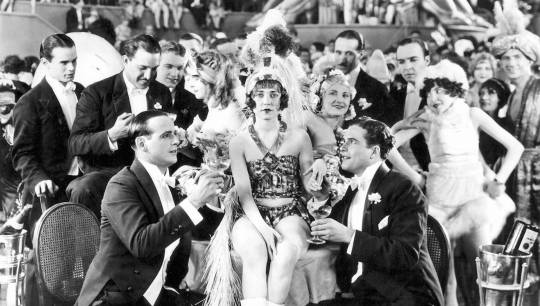
So, Model watched the sequence, took down the timing and even created a spreadsheet “so I could figure out not only how many seconds each the segments are. I was able to break it down and discover the internal logical of the editing. I came up with a tempo which is a Charleston tempo or a tempo that the Charleston would be played it.” He chose not to include the famous Charleston music in the sequence because he thought it would be a distraction. “I chose to play music that was at the Charleston tempo so you could concentrate on what was being done on screen.”
fromMotion Picture Classic, April 1922
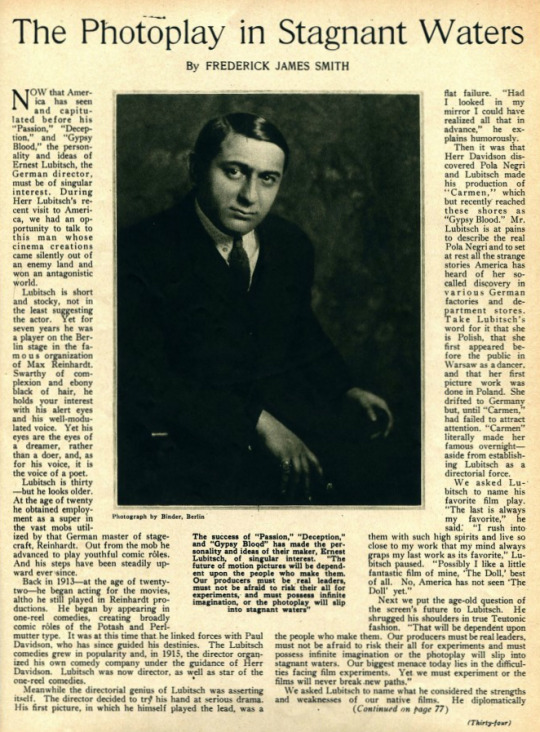
Transcription:
NOW that America has seen and capitulated before his “Passion,” “Deception,” and “Gypsy Blood,” the personality and ideas of Ernest [sic] Lubitsch, the German director, must be of singular interest. During Herr Lubitsch’s recent visit to America, we had an opportunity to talk to this man whose cinema creations came silently out of an enemy land and won an antagonistic world.
Lubitsch is short and stocky, not in the least suggesting the actor. Yet for seven years he was a player on the Berlin stage in the famous organization of Max Reinhardt. Swarthy of complexion and ebony black of hair, he holds your interest with his alert eyes and his well-modulated voice. Yet his eyes are the eyes of a dreamer, rather than a doer, and, as for his voice, it is the voice of a poet.
Lubitsch is thirty—but he looks older. At the age of twenty he obtained employment as a super in the vast mobs utilized by that German master of stagecraft, Reinhardt. Out from the mob he advanced to play youthful comic rôles. And his steps have been steadily upward ever since.
Back in 1913—at the age of twenty-two—he began acting for the movies, altho he still played in Reinhardt productions. He began by appearing in one-reel comedies, creating broadly comic rôles of the Potash and Perlmutter type. It was at this time that he linked forces with Paul Davidson, who has since guided his destinies. The Lubitsch comedies grew in popularity and, in 1915, the director organized his own comedy company under the guidance of Herr Davidson. Lubitsch was now director, as well as star of the one-reel comedies.
Meanwhile the directorial genius of Lubitsch was asserting itself. The director decided to try his hand at serious drama. His first picture, in which he himself played the lead, was a flat failure. “Had I looked in my mirror I could have realized all that in advance,” he explains humorously.
Then it was that Herr Davidson discovered Pola Negri and Lubitsch made his production of “Carmen,” which but recently reached these shores as “Gypsy Blood.” Mr. Lubitsch is at pains to describe the real Pola Negri and to set at rest all the strange stories America has heard of her so-called discovery in various German factories and department stores. Take Lubitsch’s word for it that she is Polish, that she first appeared before the public in Warsaw as a dancer, and that her first picture work was done in Poland. She drifted to Germany but until “Carmen,” had failed to attract attention. “Carmen” literally made her famous overnight—aside from establishing Lubitsch as a directorial force.
We asked Lubitsch to name his favorite film play. “The last is always my favorite,” he said: “I rush into them with such high spirits and live so close to my work that my mind always graps [sic] my last work as its favorite,” Lubitsch paused. “Possibly I like a little fantastic film of mine, ‘The Doll,’ best of all. No, America has not seen ‘The Doll’ yet.”
Next we put the age-old question of the screen’s future to Lubitsch. He shrugged his shoulders in true Teutonic fashion. “That will be dependent upon the people who make them. Our producers must be real leaders, must not be afraid to risk their all for experiments and must possess infinite imagination or the photoplay will slip into stagnant waters. Our biggest menace today lies in the difficulties facing film experiments. Yet we must experiment or the films will never break new paths.”
We asked Lubitsch to name what he considered the strengths and weaknesses of our native films. He diplomatically
(Continued on page 77)
Photo Caption:
The success of “Passion,” “Deception,” and “Gypsy Blood” has made the personality and ideas of their maker, Ernest [sic] Lubitsch, of singular interest. “The future of motion pictures will be dependent upon the people who make them. Our producers must be real leaders, must not be afraid to risk their all for experiments, and must possess infinite imagination, or the photoplay will slip into stagnant waters”
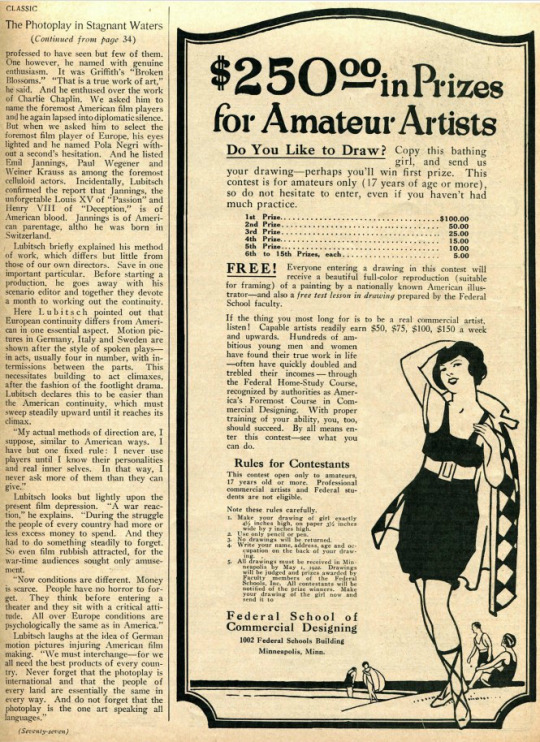
The Photoplay in Stagnant Waters
(Continued from page 34)
professed to have seen but few of them. One however, he named with genuine enthusiasm. It was Griffith’s “Broken Blossoms.” “That is a true work of art,” he said. And he enthused over the work of Charlie Chaplin. We asked him to name the foremost American film players and he again lapsed into diplomatic silence. But when we asked him to select that foremost film player of Europe, his eyes lighted and he named Pola Negri without a second’s hesitation. And he listed Emil Jannings, Paul Wegener and Weiner [sic] Krauss as among the foremost celluloid actors. Incidentally, Lubitsch confirmed the report that Jannings, the unforgettable Louis XV of “Passion” and Henry VIII of “Deception,” is of American blood. Jannings is of American parentage, altho he was born in Switzerland.
Lubitsch briefly explained his method of work, which differs but little from those of our own directors. Save in one important particular. Before starting a production, he goes away with his scenario editor and together they devote a month to working out the continuity.
Here Lubitsch pointed out that European continuity differs from American in one essential aspect. Motion pictures in Germany, Italy and Sweden are shown after the style of spoken plays—in acts, usually four in number, with intermissions between the parts. This necessitates building to act climaxes, after the fashion of the footlight drama. Lubitsch declares this to be easier than the American continuity, which must steadily build upward until it reaches its climax.
“My actual methods of direction are, I suppose, similar to American ways. I have but one fixed rule: I never use players until I know their personalities and real inner selves. In that way, I never ask more of them than they can give.”
Lubitsch looks but lightly upon the present film depression. “A war reaction,” he explains. “During the struggle the people of every country had more or less excess money to spend. And they had to do something steadily to forget. So even film rubbish attracted, for the war-time audiences sought only amusement.
“Now conditions are different. Money is scarce. People have no horror to forget. They think before entering a theater and they sit with a critical attitude. All over Europe conditions are psychologically the same as in America.”
Lubitsch laughs at the idea of German motion pictures injuring American film making. “We must interchange—for we all need the best products of every country. Never forget that the photoplay is international and that the people of every land are essentially the same in every way. And do not forget that the photoplay is the one art speaking all languages.”
“ It’s true we’re in the same room but we’re not same the planet “
The Shop Around the Corner (1940)
Director:Ernst Lubitsch
#christmasmovies
The Shop Around the Corner is a romantic comedy produced and directed by Ernst Lubitsch. Margaret Sullavan and James Stewart play two employees at a leathergoods shop in Budapest who can barely stand each other, not realizing they are falling in love as anonymous correspondents through their letters.
__________________________________________________________
Scrivimi fermo posta è una commedia romantica del 1940 prodotta e diretta da Ernst Lubitsch. Margaret Sullavan e James Stewart interpretano due commessi in un negozio di articoli di pelle a Budapest che non si sopportano, senza sapere che in realtà si stanno innamorando tramite le loro lettere in quanto corrispondenti anonimi.
Regia/Directed by: Ernst Lubitsch
Sceneggiatura/Screenplay by: Samson Raphaelson. Based on the 1937 Hungarian play Parfumerie by Miklós László
Montaggio/Edited by: Gene Ruggiero
Fotografia/Cinematography: William H. Daniels
Rotten Tomatoes: 100%
Metacritic: 96
IMDb: 8,1
Letterboxd: 4.1
Anno/Year: 1940
#theshoparoundthecorner #ernstlubitsch #lubitschmovies #jimmystewart #jamesstewart #christmas #christmasmovie #moviemaking #movielover #film #parfumerie #hungarianplay #movieadaptation #budapest #letters #youvegotmail #oldhollywood #goldenageofhollywood #blackandwhite #salesman #klaranovak #filmphotography #blackandwhitemovies #christmasmovies #mgmmovies #romanticmovies #romance #margaretsullavan #frankmorgan
The Shop Around The Corner (dir. Ernst Lubitsch, 1940)
There might be a lot we don’t know about each other. You know, people seldom go to the trouble of scratching the surface of things to find the inner truth.
Post link
How to Seduce a Man.
Trouble in Paradise (1932)

